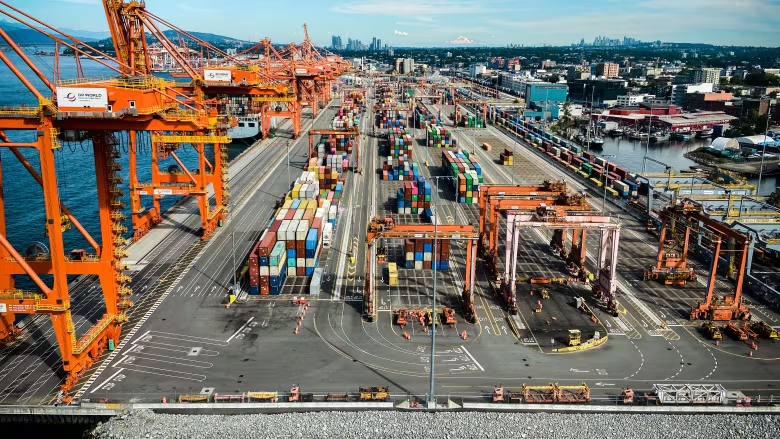Impending Rail Stoppage in Canada: Potential Impacts on Economy and Daily Life
Canada is on the brink of a significant disruption as its two main railway companies, Canadian National Railway (CN) and Canadian Pacific Kansas City (CPKC), face a simultaneous labor stoppage. The unions and companies are at an impasse over wages, benefits, and working conditions, with the possibility of a strike or lockout looming.
A halt in operations could have widespread repercussions across various sectors. Freight movement, which is crucial for the Canadian economy, could come to a standstill, affecting everything from agriculture to automotive manufacturing. The agricultural sector, particularly in the Prairies, heavily relies on rail for transporting goods. The stoppage could disrupt the supply chain for fertilizers, impacting crop yields, and subsequently, global food markets.
Retailers and grocery stores might also feel the strain, with perishable goods like meat, fruit, and frozen foods being particularly vulnerable to delays. This disruption could lead to shortages, especially in western and Atlantic Canada. Small businesses, which lack the flexibility of larger corporations, may find it challenging to source alternative transportation, putting additional pressure on their operations.
Commuter rail services in major cities like Toronto, Montreal, and Vancouver are expected to face disruptions, affecting thousands of daily commuters. The potential shutdown of key commuter lines could lead to significant inconveniences for those who rely on these services for daily transportation.
In summary, the rail stoppage, if it occurs, is poised to create ripple effects throughout the Canadian economy, affecting industries, businesses, and daily life in numerous ways.

